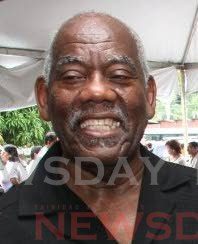Holding parents responsible

PROF SELWYN Cudjoe’s suggestion on Monday that parents should be held responsible for the criminal actions of their children is one that should be carefully examined.
Speaking at the UNC’s anti-crime talks at Chaguanas, Prof Cudjoe cited a recent case in the US in which a Michigan mother was convicted of involuntary manslaughter for failing to prevent her son from carrying out a school shooting. The father is due to go on trial next month.
Making parents responsible could act as a strong incentive for adults to be more vigilant to signs their child is involved in criminality. It could also force the hand of neglectful adults, particularly absent fathers.
A legal standard that moves away from the strict idea of individual agency would merely be the escalation of laws already in place.
For almost a decade, parents have been liable for the actions of their child under the Children’s Act.
Section 56 of that act, proclaimed in 2015, gives the court the power to order a parent or guardian to be held responsible if a child is charged with any offence. However, the law currently limits this to any offence for which the penalty is the payment of a fine or damages.
While the professor was critical of aspects of the current government’s positions, his proposal may well chime with the views of the Prime Minister, who, early in his tenure, made a call for “adults to stand up and take responsibility for the young people in our community.”
But it is one thing to speak of a moral duty, it is another to broaden the scope of existing legal obligations in an absolute manner.
When we think of children and crime, we think not of cases in which children are perpetrators but mainly those in which they are victims. The harrowing footage of a child being endangered at a fast-food restaurant last week while a man was gunned down is a stark reminder that we need to be worried most immediately about adults.
What proportion of crime is committed by children?
Equally, it is also true that most criminals were once minors whose lives may have gone down an entirely different path.
Yet, even in cases in which a child is squarely to blame, such as a recent stabbing at a school in Tobago, the circumstances can be complicated. For instance, some children may simply be acting out in response to bullying.
There will always be things beyond the reach of parents’ control. The recent US case was perhaps an extreme example where not only were signs ignored, but the mother literally put the gun in her son’s hands.
Because not every case will be as clear-cut, there should be caution in adopting catch-all principles.


Comments
"Holding parents responsible"